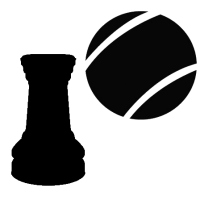Godsboard
Godsboard is a gambling dice game, popular in taverns, wine shops and gaming houses in Anrel and throughout the Natorn Archipelago.
Sportsplugin-autotooltip__small plugin-autotooltip_bigGames & Sports
List of articles related to games, sports and sporting events.
topics cult1
 This is in a series of articles on Games and Sportsplugin-autotooltip__small plugin-autotooltip_bigGames & Sports
This is in a series of articles on Games and Sportsplugin-autotooltip__small plugin-autotooltip_bigGames & Sports
List of articles related to games, sports and sporting events.
topics cult1.
Game Board
The game is typically played with six-sided dice, on a god-board, a circle divided into eight equal divisions. Each division is assigned to one of the eight principal gods of Anrel: the three “state gods” Nestaia, Ketrorl and Minasaia on one side, and the three nature gods Cornelen, Natrawul, and either Besech (in Anret) or Bremahk on the other. The One is always placed at the top, The Nameless at the bottom. Boards vary in quality, from richly painted icons of the gods outlined in gold and jewels in wealthy gamehouses, to rough circles of carved or painted in rural taverns. Simple boards are found carved in stone at campsites or even scratched in the dust.
Combinations of dice throws are assigned to each of the gods, with The One always being a double-one, and The Nameless always being double-six. Other key combinations are assigned to each of the other gods, along with secondary combinations, so that all possible throws of the dice are assigned according to probability.
Method of Play
Stakes are set a the start. The stake is traditionally an alm coin, though lower-value counters or high value silver or gold coins can also be used.
Play procedes by turns. A player throws the dice. If he throws a secondary combination, the player places a stake on the relevant section of the board. If he throws a key combination, he wins all the money on that section of the board. The standard exceptions are, if throwing The One, the player takes all the money on the board and finishes the game. Throwing The Nameless requires a forfeit, which is usually this means the thrower has to put in a stake for each player present. Often players also agree on other non-monetary forfeits.
Variations
There are many variations of the game.
- Numbers is a common variation where the sum score of the dice thrown determines which section of the board is taken, rather than the combinations written on the board. This is particularly suited to ad hoc games at camp sites, but means the probability of all sections is not equal. Numbers is often used in friendly games, but also used by hustlers trying to cheat naive gamblers with changes to the rules.
- In Seasons, the god of one of the eight calendrial seasons is “favoured”, so that every time a stake is put down, one is placed for the played god, and a second on the god of the season. Seasons is considered a way of honouring the gods, and is popular in rural areas. It also gives a greater chance of winning, since the probability of throwing the seasonal combination is higher.
- Roundhouse is a lower-stakes game where play proceeds clockwise around the board by turns, so that any secondary throw leads to players putting their stake on the current section. This distributes stakes more evenly around the board and is suited to ongoing games where various players sit in only for a few rounds. Roundhouse has the most variations, such as Jumping Roundhouse in which each player first throws one die to move a certain number of steps around the board, then makes the usual double throw for that section.
- Lord's Favour is a high-stakes game, in which each player chooses one of the gods. Usually only the six pantheon gods can be chosen, though some gamehouses have special rules for those venturing to play The One or, more rarely, The Nameless. In case of disputes over selecting the Favour of a god, players roll dice, the highest number winning the spot. Each player can only win the pot contributed to that their god, although the likelihood of their home section is slightly increased (unless they throw The One). In this game stakes quickly mount up on the board, making it a high-risk, high-win game.
